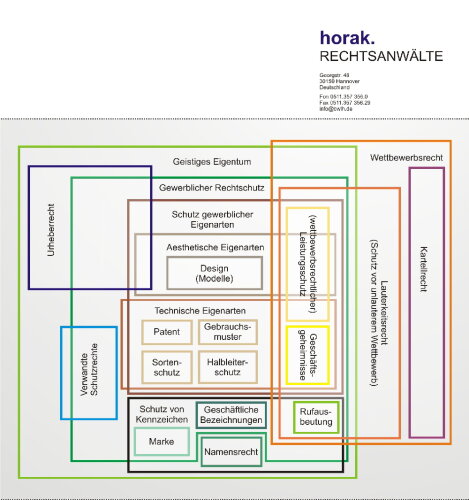Best Employment & Labor Lawyers in Germany
Share your needs with us, get contacted by law firms.
Free. Takes 2 min.
Or refine your search by selecting a city:
List of the best lawyers in Germany
Germany Employment & Labor Legal Articles
Browse our 1 legal article about Employment & Labor in Germany written by expert lawyers.
- Wrongful Dismissal in Germany: What to Do After Being Fired
- Most employees in Germany enjoy strong statutory protection, especially against unfair dismissal, under laws like the Civil Code (BGB) and Protection Against Dismissal Act (KSchG). You usually must act very fast after receiving a termination: you have only 3 weeks to file a claim at the labor court (Arbeitsgericht). Written... Read more →
About Employment & Labor Law in Germany
Employment and labor law in Germany governs the rights and duties between employers and employees. It is primarily designed to protect employees as the potentially weaker party in the employment relationship. Regulations cover a wide range of topics, including employment contracts, working hours, termination procedures, and employee rights. The legal framework aims to ensure that fair labor standards are upheld, fostering a balanced relationship between employers and workers.
Why You May Need a Lawyer
There are several situations in which you might need legal assistance related to employment and labor in Germany. Common scenarios include disputes over employment contracts, issues related to wrongful termination, discrimination or harassment at the workplace, disputes regarding salary and benefits, and conflicts regarding working hours or conditions. Navigating these situations can be complex due to the nuances of German labor laws, so having the guidance of a knowledgeable attorney is often beneficial.
Local Laws Overview
German employment law is characterized by a detailed legal framework. Key aspects include:
- Employment Contracts: While not all employment contracts in Germany must be in writing, having a written agreement is highly recommended. The contract should clearly outline duties, working hours, salary, and other employment terms.
- Termination Protection: The Protection Against Unfair Dismissals Act applies to companies with more than ten employees and mandates that dismissals must be socially justified, particularly for employees who have been with a company for six months or more.
- Working Hours: The Working Time Act regulates maximum working hours, breaks, and rest periods. Typically, employees should not work more than 48 hours per week.
- Vacation and Leave: Employees are entitled to a minimum of 24 vacation days per year, based on a six-day working week.
- Wages and Salaries: Germany has a statutory minimum wage, which is regularly reviewed and adjusted by the Minimum Wage Commission.
Frequently Asked Questions
What is the standard probationary period in Germany?
The standard probationary period is usually six months, during which the notice period for termination can be shorter than usual.
How can I legally terminate an employee?
An employer must provide a valid reason for termination, adhere to the notice period, and ensure that the dismissal does not violate anti-discrimination laws.
What should I do if I face discrimination at work?
Employees facing discrimination should report the incident to their employer and can seek advice or file a complaint with their local Anti-Discrimination Agency.
Are there different regulations for part-time workers?
Part-time employees are entitled to the same working conditions as full-time employees, with benefits proportional to their working hours.
What are my rights regarding overtime pay?
Overtime must usually be specified in the employment contract and is often compensated monetarily or with additional time off.
How is parental leave regulated in Germany?
Parents can take parental leave up to three years after the birth of a child, with twelve to fourteen months of financial support available through parental allowance.
Can my employer change my contract terms without my consent?
An employer cannot unilaterally change the terms of an employment contract without the employee’s consent.
What if my employer doesn’t pay my salary on time?
Employees should first address the issue with their employer. If unresolved, legal advice should be sought, and claims can be filed in court.
What is a works council?
A works council is an elected body representing employees’ interests within a company, mainly in matters of labor law and workplace conditions.
How can I resolve a dispute with my employer?
Many disputes can be resolved through negotiation or mediation. If these fail, legal proceedings or arbitration might be necessary.
Additional Resources
For more information or help, consider reaching out to:
- Federal Ministry of Labour and Social Affairs (BMAS): Provides comprehensive information related to employment laws.
- German Trade Union Federation (DGB): Offers support and resources for workers.
- Federal Anti-Discrimination Agency: Assists in cases of workplace discrimination.
- Arbitration Boards: Available for resolving disputes outside of court.
Next Steps
If you need legal assistance, it is crucial to select an attorney experienced in German employment law. Begin by researching lawyers specializing in labor law, read reviews or seek recommendations, and arrange a consultation to discuss your situation. Remember to gather all relevant documents and information before your meeting to enable your lawyer to offer the best advice possible.
Lawzana helps you find the best lawyers and law firms in Germany through a curated and pre-screened list of qualified legal professionals. Our platform offers rankings and detailed profiles of attorneys and law firms, allowing you to compare based on practice areas, including Employment & Labor, experience, and client feedback.
Each profile includes a description of the firm's areas of practice, client reviews, team members and partners, year of establishment, spoken languages, office locations, contact information, social media presence, and any published articles or resources. Most firms on our platform speak English and are experienced in both local and international legal matters.
Get a quote from top-rated law firms in Germany — quickly, securely, and without unnecessary hassle.
Disclaimer:
The information provided on this page is for general informational purposes only and does not constitute legal advice. While we strive to ensure the accuracy and relevance of the content, legal information may change over time, and interpretations of the law can vary. You should always consult with a qualified legal professional for advice specific to your situation.
We disclaim all liability for actions taken or not taken based on the content of this page. If you believe any information is incorrect or outdated, please contact us, and we will review and update it where appropriate.
Browse employment & labor law firms by service in Germany
Germany Attorneys in related practice areas.
Browse employment & labor law firms by city in Germany
Refine your search by selecting a city.
















